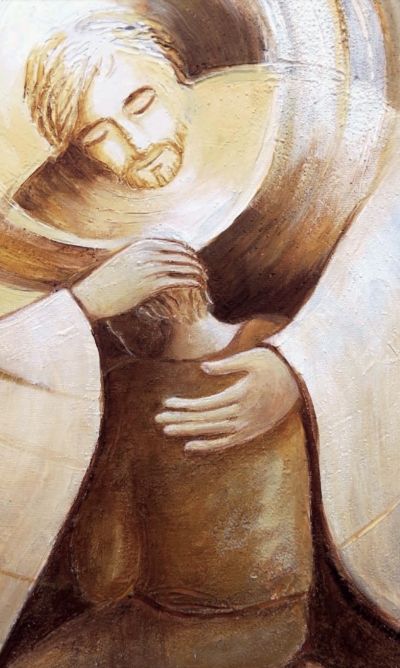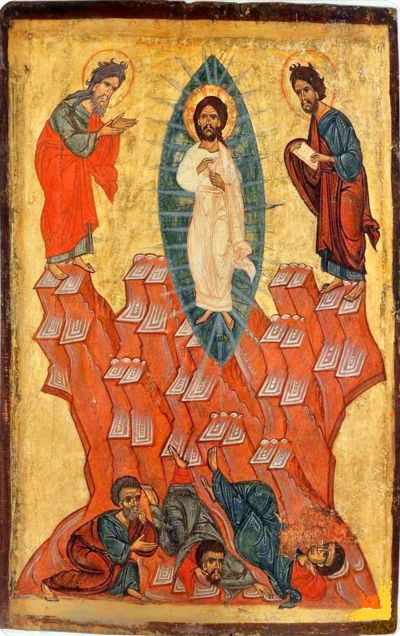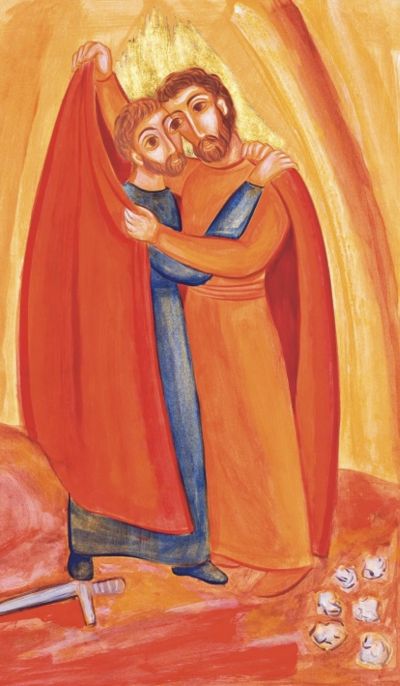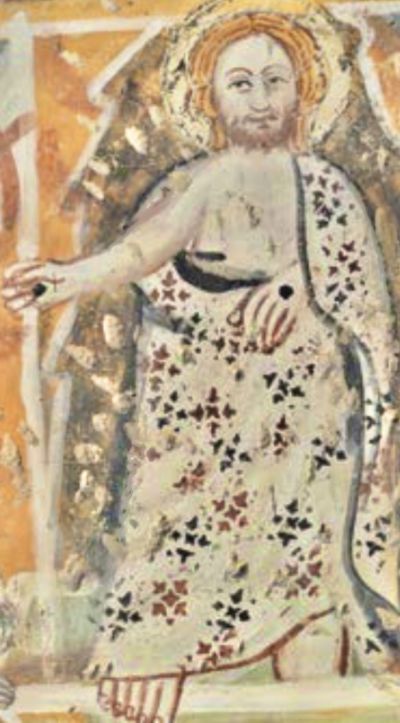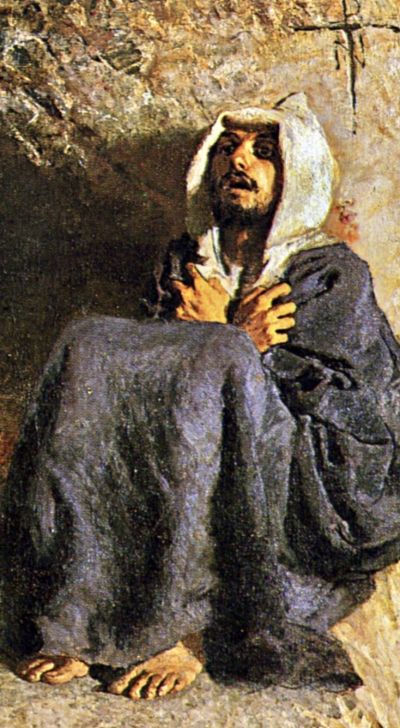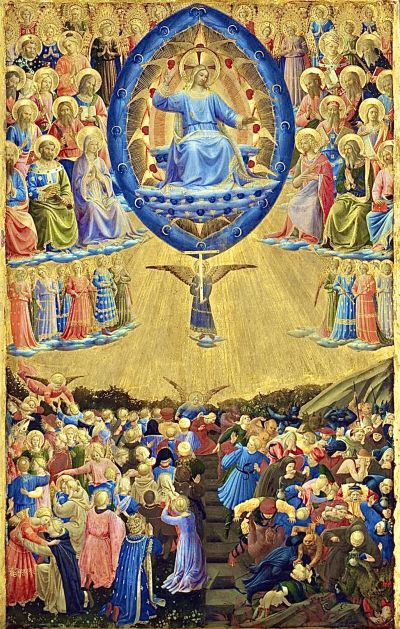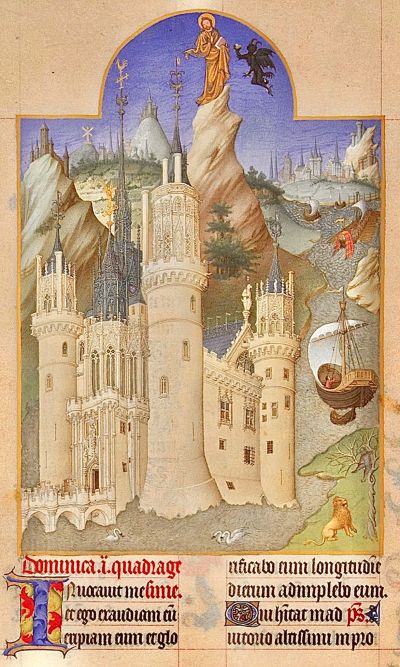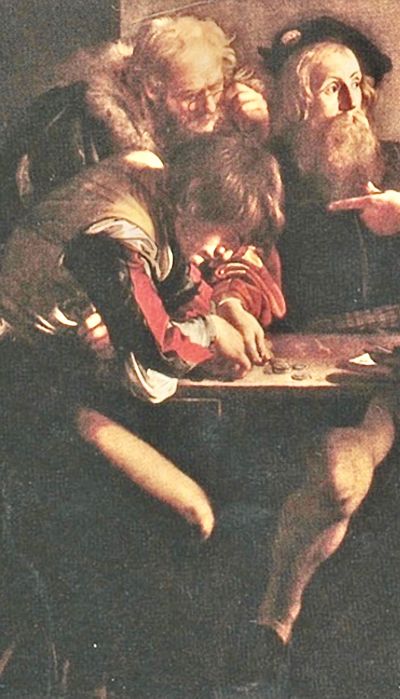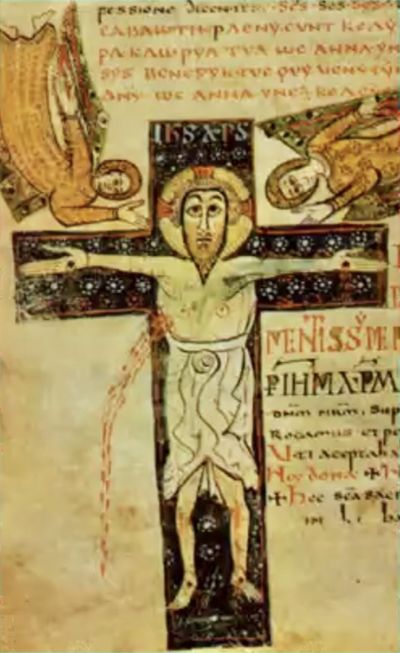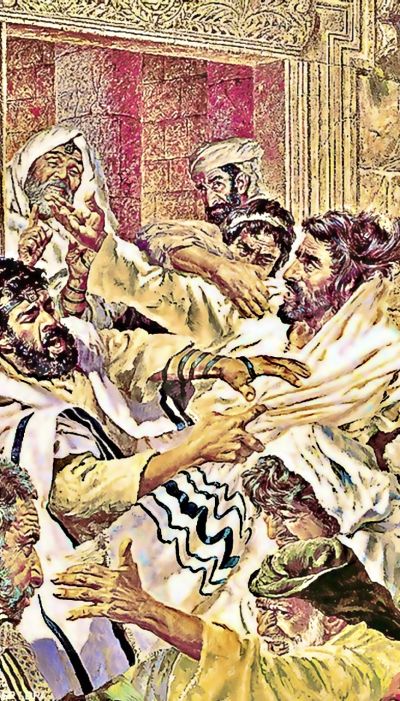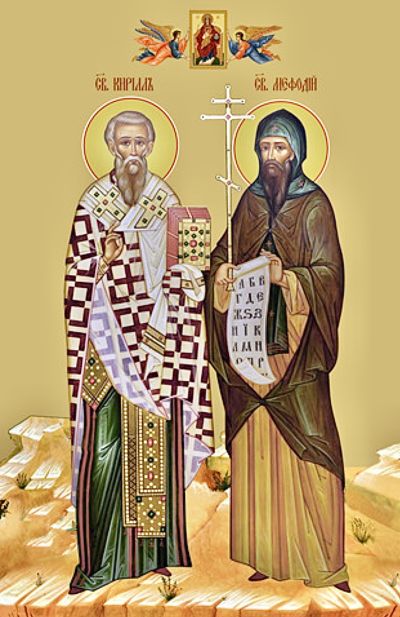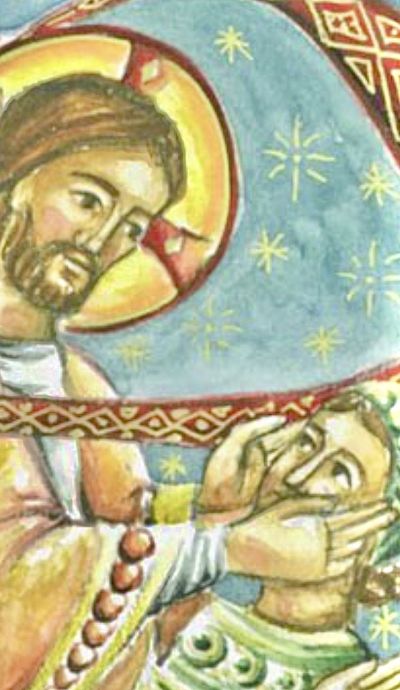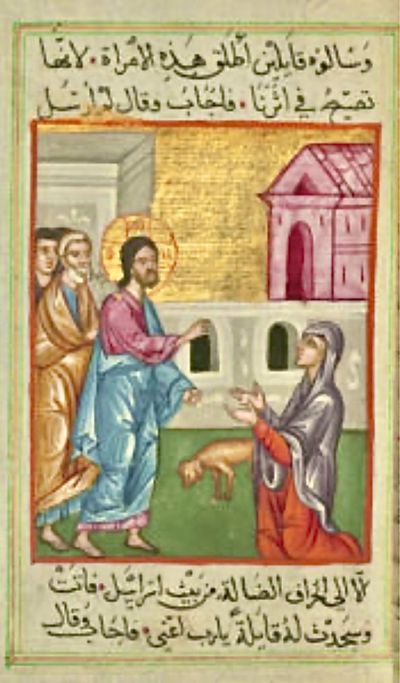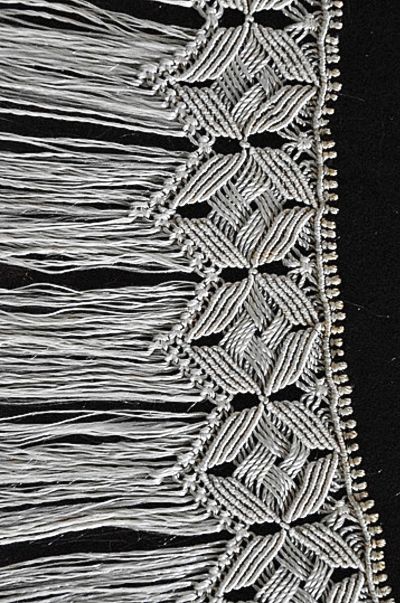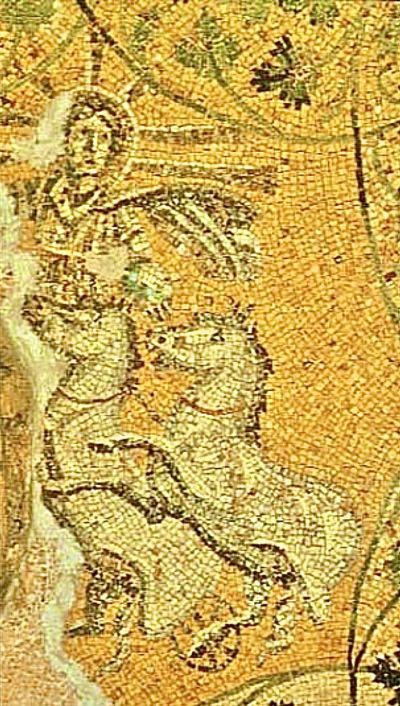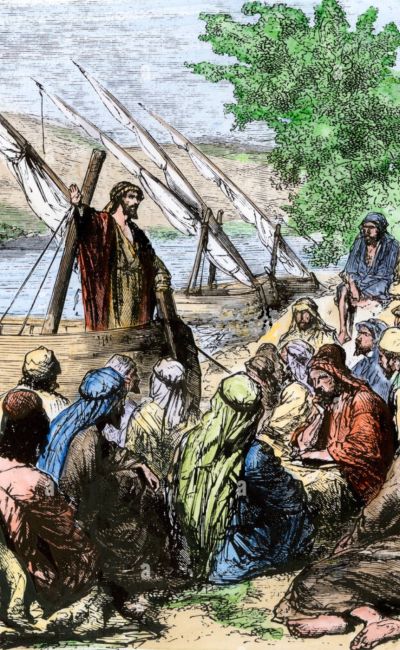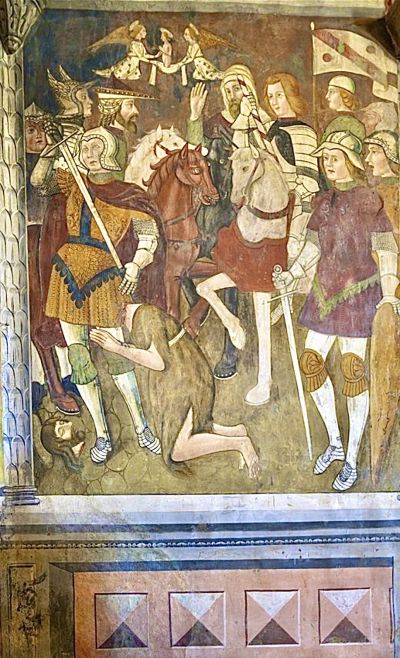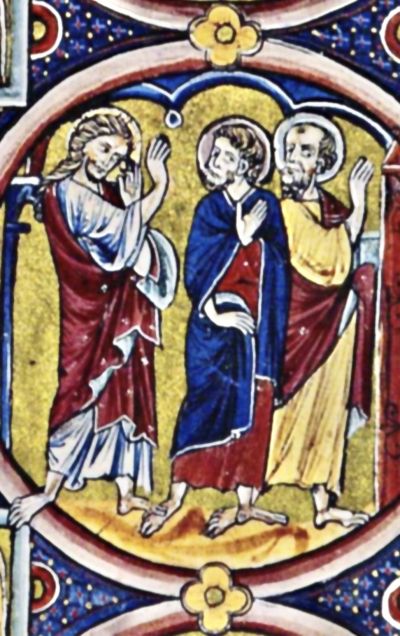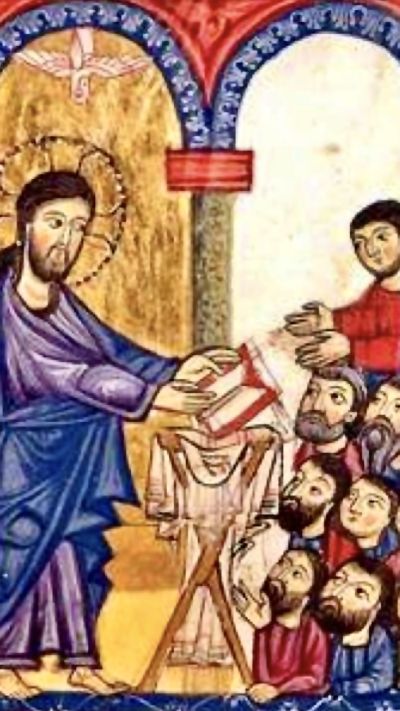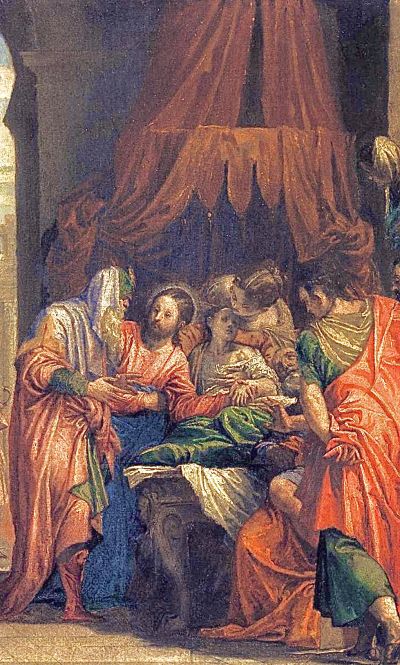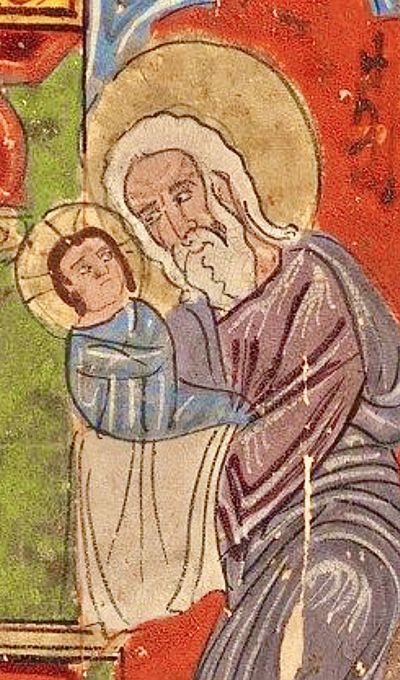Dialogo e Solstizio
Feb 22, 2026
Forgiveness ahead: do not mark boundaries
Written by don Giuseppe Nespeca Published in Commento precedente
Exemplary Encounter and Life at the Unknown Climax (Lk 6:36-38) Is it possible to put the Gospel under exemplary «Measure» - eg. of Law (retributive) or of the First Testament…
121
Feb 21, 2026
Against the tide Transfiguration
Written by don Giuseppe Nespeca Published in Commento precedente
Faith and Metamorphosis (Mk 9:2-13) In biblical language, the experience of «the Mount» is an icon of the Encounter between God and man. Yes, for us it’s like “losing our…
159
Feb 20, 2026
Perfection: going all the way. And new Birth
Written by don Giuseppe Nespeca Published in Commento precedente
Between intimate struggle and not opposing the evil one (Mt 5:43-48) Jesus proclaims that our heart is not made for closed horizons, where incompatibilities are accentuated. He forbids exclusions, and…
172
Feb 19, 2026
First debt: a greater Justice
Written by don Giuseppe Nespeca Published in Commento precedente
(Mt 5:20-26) «I tell you in fact that unless your righteousness will abound more [that] of the scribes and pharisees, you will not enter the kingdom of heaven» In the…
215
Incessant struggle with ourselves and God (Mt 7:7-12) Sometimes we put the Father in the dock, because he seems to let things go as our freedom directs them. But his…
213
Feb 17, 2026
Which road leads to the Father?
Written by don Giuseppe Nespeca Published in Commento precedente
The manifestations of God's power on earth: nothing external (Lk 11:29-32) Human correspondence does not grow with the multiplication of dizzying signals. God doesn’t force the unconvinced, nor outclass with…
235
Feb 16, 2026
‘Cross-inside’ in Prayer: gaze no longer positioned outside
Written by don Giuseppe Nespeca Published in Commento precedente
Sons’ Prayer: performance or Listening? Mt 6:7-15 (v.13) «When you pray, do not babble like the pagans, for they think they will be heard because of their wordiness» (Mt 6:7;…
234
Feb 15, 2026
Judgment and sentences
Written by don Giuseppe Nespeca Published in Commento precedente
(Mt 25:31-46) The famous Judgment passage presents the ‘coming’ Risen (v.31) as «Son of man», that is, authentic and complete development of divine plan for humanity: his kind of "verdict"…
204
Feb 14, 2026
Lenten Spirituality, and the enemy who looks like a friend
Written by don Giuseppe Nespeca Published in Commento precedente
Faith, Temptations: our success (Mt 4:1-11 Mc 1:12-15 Lc 4:1-13) Only the man of God is tempted. In the Bible, temptation is not a kind of danger or seduction for…
250
Feb 13, 2026
But is it permissible for him to participate in the Eucharist?
Written by don Giuseppe Nespeca Published in Commento precedente
The Conversion, forbidden things and the Doctor of opposites (Lk 5:27-32) At the time when Luke wrote his Gospel (immediately after the mid-80s), the community of pagans converted to Christ…
284
(Mt 9:14-15) Fasting is a regenerative principle that has a unique healing power, both detoxifying and essential. It activates the energies of humanity and at the same time of diversity.…
242
Feb 11, 2026
Reputation: crossroads of the Truth of Faith
Written by don Giuseppe Nespeca Published in Commento precedente
(Lk 9:22-25) Yesterday we underlined how the worm of vanity in the search for the esteem leads to hypocrisy and ostentation. We ask ourselves: what makes the Father intimate? Carrying…
188
Feb 10, 2026
The lower self without Faith, theatrical
Written by don Giuseppe Nespeca Published in Commento precedente
Trumpets, bass drums and reciters, or perfect instruments (Mt 6:1-6.16-18) External wiles have no wisdom: they become a boomerang. Whoever tries to shine obscures his own light. Anyone who cares…
229
Feb 9, 2026
The little Food, enriching
Written by don Giuseppe Nespeca Published in Commento precedente
And the much yeast, which impoverishes (Mk 8:14-21) Jesus says one thing, the apostles understand another. The «leaven of the Pharisees and that of Herod» is a theme that alludes…
217
Feb 8, 2026
Wich road leads to the Father?
Written by don Giuseppe Nespeca Published in Commento precedente
Manifestations of God’s power on earth: nothing external (Mk 8:11-13) Jesus clashes with disbelief, stemming from various blinding, or that arises from inattention. Incarnation: there are no other valid Signs…
218
(Mt 5:17-37) Abolish or bring to Completion [vv.17-19] Religious criticized converts to the Faith for being transgressors and against the wealth of Tradition. Thus while some emphasized salvation by Faith…
275
Feb 6, 2026
Two by two: including opposite polarities
Written by don Giuseppe Nespeca Published in Commento precedente
And move the neighbors (Lk 10:1-9) Jesus notes that the Apostles are not free people (cf. Lk 9). Their way of being is so grounded on standard attitudes and obligatory…
188
Feb 5, 2026
Initiation into the Faith, through the emptiness of the inner senses
Written by don Giuseppe Nespeca Published in Commento precedente
Unclogs ears, so that we do not remain deaf and stutterers (Mk 7:31-37) The background of the Gospel passage is the theme of initiation into the Faith, which invests the…
201
Feb 4, 2026
Sons, little dogs and free movement
Written by don Giuseppe Nespeca Published in Commento precedente
Eucharistic crumbs (Mk 7:24-30) Religious law prevented dealing with foreign people and other ethnicities, borders, or culture. At the beginning, Jesus [that is: He in the first communities, His Mystical…
190
Feb 3, 2026
The origin of evil is not in an external cause
Written by don Giuseppe Nespeca Published in Commento precedente
Purity, impudity and misrepresented holiness (Mk 7,14-23) The Lord is for a comprehensive humanization. But in ancient cultures the mythical vision of the world led people to appreciate any reality…
178
Feb 2, 2026
Purity, not of the model
Written by don Giuseppe Nespeca Published in Commento precedente
Traditions and ideal order (Mk 7:1-13) Religiosity can deceive the ideal order; the life of Faith promotes it, relying on a perfection and purity derived simply from the human dimension…
246
Feb 1, 2026
We, the fringe of his cloak
Written by don Giuseppe Nespeca Published in Commento precedente
Bread and prodigies of the Christ-ghost (Mk 6:53-56) A saved existence requires a transformation from within; another beginning. A different foothold of good. In fact, the «fringe of the mantle»…
175
Jan 31, 2026
Salt and Light in Vocation
Written by don Giuseppe Nespeca Published in Commento precedente
(Mt 5:13-16) «Beautiful Works» [which express fullness] are good works, enriched by the splendour of disinterest, listening, hospitality, prayer and humble dialogue, cordial fraternity. The plural term (v.16) indicates our…
267
Jan 30, 2026
On the sidelines, and the real holiday (preserving life force)
Written by don Giuseppe Nespeca Published in Commento precedente
(Mk 6:30-34) «Come yourselves aside, to a deserted place»: the explicit reference to the «desert» is that of Exodus - which recalls the time of first Love. Experience of great…
242
Jan 29, 2026
The struggle for liberation from the corrupt, and court life
Written by don Giuseppe Nespeca Published in Commento precedente
(Mk 6:14-29) The question «Jesus, Who is he?» grows throughout the Mk’s Gospel, up to the answer of the centurion under the Cross (Mk 15:39). The assessment of the opinions…
283
Jan 28, 2026
Sending disciples: trust, humanization, sobriety
Written by don Giuseppe Nespeca Published in Commento precedente
Sober, but in sandals (Mk 6:7-13) The passage of Nazareth - painful for Jesus himself - and the description of the disciples sending, was intended to be a support and…
206
Jan 27, 2026
Expectations, misunderstandings - and the spirit of the valley
Written by don Giuseppe Nespeca Published in Commento precedente
Domestic side, not domestications (Mk 6:1-6) Where Faith is lacking, only small changes take place, not the staggering wonders of the alternative presence of God’s Kingdom (v.5). We do not…
234
Jan 26, 2026
Faith is Action, entrepreneurial; Life Force
Written by don Giuseppe Nespeca Published in Commento precedente
Faith and Healing, or exclusion (Mk 5:21-43) In Rome, at Mk’s time, the situation of confusion generated by the civil war seemed likely to become lethal for the survival of…
215
Jan 25, 2026
Contrasting Presentation: scrutinizing what is not being studied
Written by don Giuseppe Nespeca Published in Commento precedente
(Mal 3:1-4 Heb 2:14-18 Lk 2:22-40) The Lk’s Gospel passage narrates the surprising response of the Father to the prophecy of the last of the minor prophets (Mal 3,1-4). An…
206
Jan 24, 2026
Beatitudes and reversing, between ability and fragility
Written by don Giuseppe Nespeca Published in Commento precedente
Turnover in the Church, antidote to unilaterality (Mt 5:1-12) We feel ephemeral and often disappointed, yet we want to be happy, not just here and there: we are uncertain, yet…
251
Brothers and sisters, a frequent flaw of those in authority, whether civil or ecclesiastic authority, is that of demanding of others things — even righteous things — that they do not, however, put into practise in the first person. They live a double life. Jesus says: “They bind heavy burdens, hard to bear, and lay them on men’s shoulders; but they themselves will not move them with their finger (v.4). This attitude sets a bad example of authority, which should instead derive its primary strength precisely from setting a good example. Authority arises from a good example, so as to help others to practise what is right and proper, sustaining them in the trials that they meet on the right path. Authority is a help, but if it is wrongly exercised, it becomes oppressive; it does not allow people to grow, and creates a climate of distrust and hostility, and also leads to corruption (Pope Francis)
Fratelli e sorelle, un difetto frequente in quanti hanno un’autorità, sia autorità civile sia ecclesiastica, è quello di esigere dagli altri cose, anche giuste, che però loro non mettono in pratica in prima persona. Fanno la doppia vita. Dice Gesù: «Legano infatti fardelli pesanti e difficili da portare e li pongono sulle spalle della gente, ma essi non vogliono muoverli neppure con un dito» (v.4). Questo atteggiamento è un cattivo esercizio dell’autorità, che invece dovrebbe avere la sua prima forza proprio dal buon esempio. L’autorità nasce dal buon esempio, per aiutare gli altri a praticare ciò che è giusto e doveroso, sostenendoli nelle prove che si incontrano sulla via del bene. L’autorità è un aiuto, ma se viene esercitata male, diventa oppressiva, non lascia crescere le persone e crea un clima di sfiducia e di ostilità, e porta anche alla corruzione (Papa Francesco)
This is the road Jesus points out to all who want to be his disciples: "Judge not... condemn not... forgive, and you will be forgiven; give, and it will be given to you.... Be merciful, even as your Father is merciful" (Lk 6: 36-38). In these words we find very practical instructions for our daily conduct as believers [Pope Benedict]
Questa è la strada che Gesù mostra a quanti vogliono essere suoi discepoli: "Non giudicate... non condannate... perdonate e vi sarà perdonato; date e vi sarà dato... Siate misericordiosi come è misericordioso il Padre vostro" (Lc 6, 36-38). In queste parole troviamo indicazioni assai concrete per il nostro quotidiano comportamento di credenti [Papa Benedetto]
Path of Lent, learning a little more how to “ascend” with prayer and listen to Jesus and to “descend” with brotherly love, proclaiming Jesus (Pope Francis)
Itinerario della Quaresima, imparando un po’ di più a “salire” con la preghiera e ascoltare Gesù e a “scendere” con la carità fraterna, annunciando Gesù (Papa Francesco)
Anyone who welcomes the Lord into his life and loves him with all his heart is capable of a new beginning. He succeeds in doing God’s will: to bring about a new form of existence enlivened by love and destined for eternity (Pope Benedict)
Chi accoglie il Signore nella propria vita e lo ama con tutto il cuore è capace di un nuovo inizio. Riesce a compiere la volontà di Dio: realizzare una nuova forma di esistenza animata dall’amore e destinata all’eternità (Papa Benedetto)
You ought not, however, to be satisfied merely with knocking and seeking: to understand the things of God, what is absolutely necessary is oratio. For this reason, the Saviour told us not only: ‘Seek and you will find’, and ‘Knock and it shall be opened to you’, but also added, ‘Ask and you shall receive’ [Verbum Domini n.86; cit. Origen, Letter to Gregory]
duevie.art
don Giuseppe Nespeca
Tel. 333-1329741
Disclaimer
Questo blog non rappresenta una testata giornalistica in quanto viene aggiornato senza alcuna periodicità. Non può pertanto considerarsi un prodotto editoriale ai sensi della legge N°62 del 07/03/2001.
Le immagini sono tratte da internet, ma se il loro uso violasse diritti d'autore, lo si comunichi all'autore del blog che provvederà alla loro pronta rimozione.
L'autore dichiara di non essere responsabile dei commenti lasciati nei post. Eventuali commenti dei lettori, lesivi dell'immagine o dell'onorabilità di persone terze, il cui contenuto fosse ritenuto non idoneo alla pubblicazione verranno insindacabilmente rimossi.


